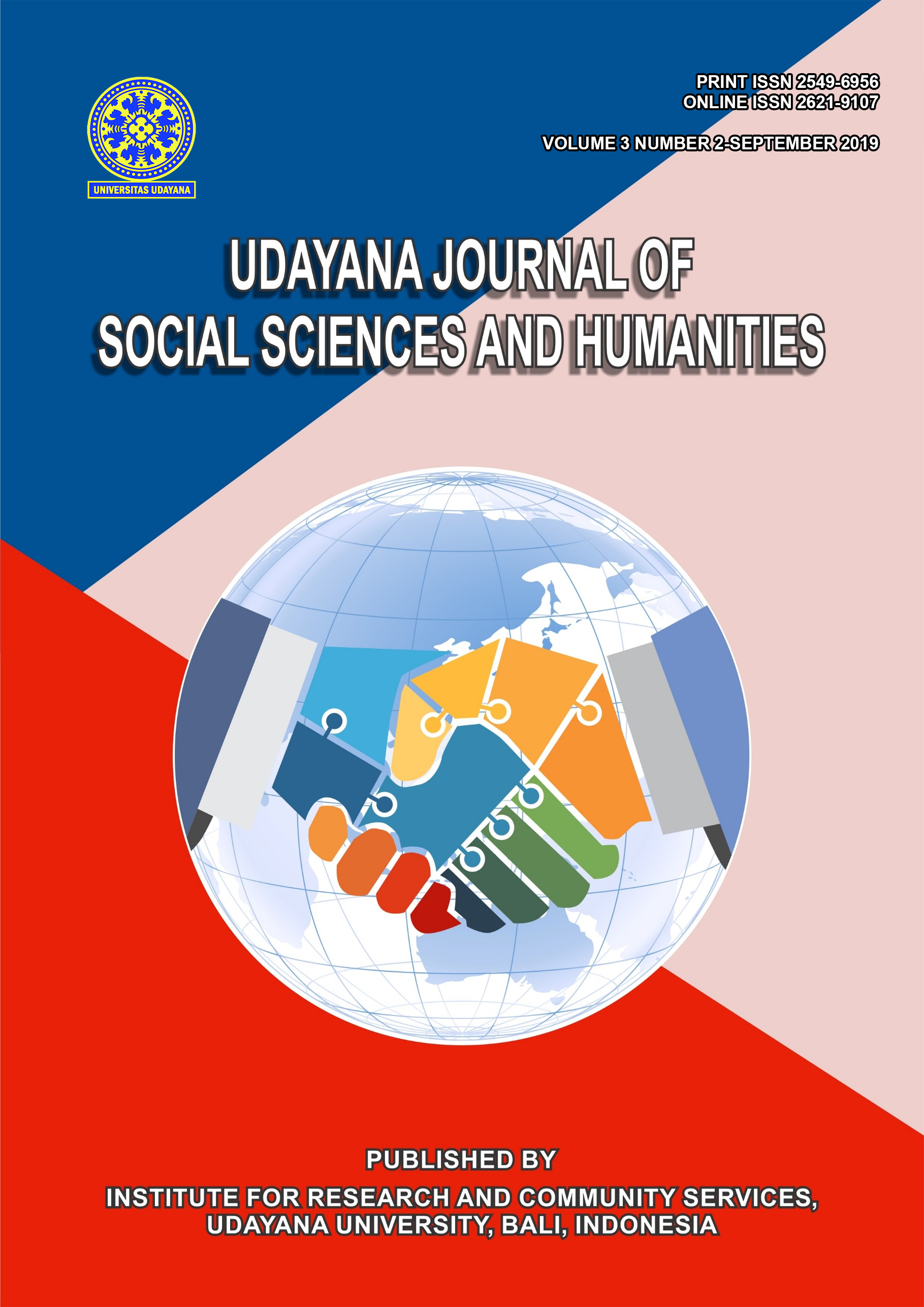Dative Case Verbs in Japanese
Abstract
This study aimed to describe the dative case verbs in Japanese syntactically and semantically. Specifically, it aimed to explore the verbs that take an indirect object (IO) in the Japanese sentences. The theories used in this research were the theory of Givon (2001), and Nitta (1991). The data used in this research were the data obtained from Japanese corpus. The research method used was descriptive analysis.This research indicated that dative case verbs are verbs whose presence would potentially take an IO. The results of this research were (1) The verbs that require the presence of an IO in Japanese is a transitive verb, with the marker ni, and (2) those verbs are ageru 'give', oshieru 'teach', kureru 'give' and kau 'buy'. Semantically these verbs are keizoku doushi ‘continuative verbs’.






